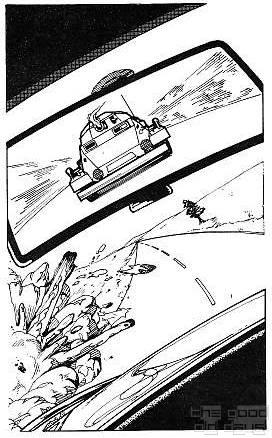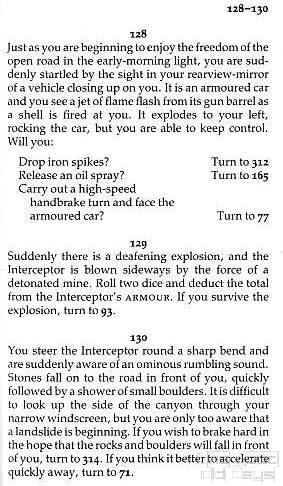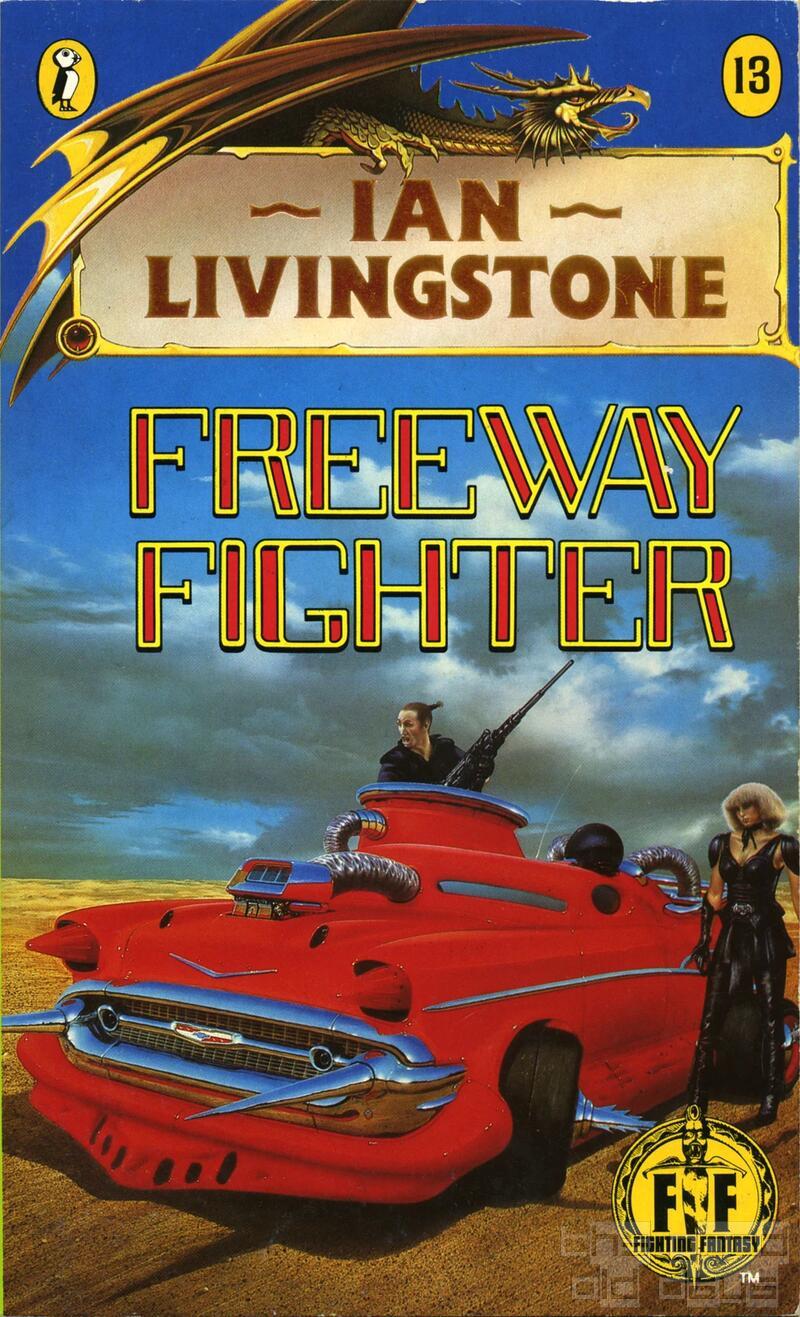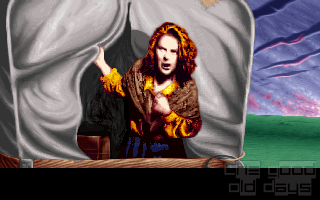After numerous D&D-like scenarios, a Star Trek imitation and a gothic horror tale, it was time to rip off the next big trend. Mad Max had started a huge buzz around post-apocalyptic car chase movies. Car Wars had taken this theme into a game. Games Workshop copied it with Battlecars. The latter having been designed by Ian Livingstone. The author of Freeway Fighter. The book therefore being the derivative of a derivative of a derivative. It does give the impression that Ian was not particularly engaged in creating it.
The player's mission is to fight his way to another city in a highly armed sportscar, to pick up a bulky tank truck there and get it back to his home base. The Wages of Fear, however, it is not.
Instead, what we get is a rather uninspired series of paragraphs droning on about the “joys of driving fast without the fear of a speeding ticket” (yes, more than once), completely random encounters of “suddenly, [an armed vehicle] appears in your rear-view mirror and attacks you” and equally disjointed randomness. The book manages the not easy feat of drawing exactly nothing interesting out of its premise.

On the gaming side, one of the main challenges is petrol management. Because, you know, although you are on what is likely the most important mission for the survival of your city, they barely gave you enough to even last a third of the way. Oh well, it makes no sense, but it's not too bad. It introduces a sort of checkpoint system which prevents players from going all the way to the end only to fail then, because they didn't pick something crucial up much earlier.
Second, there are numerous fights, as expected in a Livingstone book. High skill is anyway required to pass the ubiquitous skill checks. Without equally strong stats for the car, little chance of making it. The separation of the two essentially leading to double bookkeeping of two value pairs. Though at least occasionally, this gives the option to choose between a car battle versus fighting it out hand to hand. The downside: unusually high stamina values applied in this book's rules make those fights even more grindingly long.
Third, in the second half of the book, there is an over-reliance of luck rolls. The infiltration of a gang's camp consisting almost exclusively on those. Where is the fun in that?
Continuity glitches and generally sloppy editing just re-enforce the negative impression. Remember, you will need extra petrol. You encounter a number of abandoned cars on the roadside. Do you ever check their tanks? Yes, in fact you do. Once. Where the book then even has the audacity to state that you do that “routinely, as always”. Although you have never done it before.

Worse, on one path, you come across a garage whose owner nicely repairs the damage your car has taken so far. Against a hefty fee, of course. Only for the book to state three paragraphs later that your car is in very bad shape and in urgent need of repairs, proposing (in spite of time pressure) to perform emergency repairs yourself.
The way back to New Hope (urk!), for unknown reasons, takes only a fraction of the time spent driving the other way round. Although you are in a much slower vehicle. There are exactly two encounters on the way back. During one of which one tire is burst, stopping you on the road, forcing you to face it off with an evil motorcyclist. After defeating the guy, you drive off. As if nothing happened.
Well, nothing is fundamentally broken in the book. It is not a total disaster, like the previous one. Though what remains as overall impression, unfortunately, is just boredom. Right before the very end, there is another completely random encounter with a certain “Rat Man”. A guy with mad eyes wearing a robe just throwing rats at you out of the blue. By this point in the book, this actually made me laugh. In a positive way. It at least was really unexpected.
Plus, this turns into one of the two factors determining the ending. Freeway Fighter is the first book of the line to introduce staged levels of victory. “You have given your life to fulfil the task”, “You have fulfilled your task” and “You have fulfilled your task and liberated our great leader” – three degrees of success. The idea certainly is not fully formed here yet, but it is a start which could be turned into something more interesting.


Comments (1) [Post comment]